Originally posted by: sashashyam
The quality of caring: With apologies to Shakespeare. Like Portia's quality of mercy in The Merchant of Venice, the quality of caring in Jodha is also twice blessed: it blesses her that gives and also the one who takes.
I used to like Jodha more than Jalal those days. I don't believe it myself now.😆 But that was before she was infected with mahaanta.
Jalal wonders earlier what more there might be for him to discover about Jodha. He gets a large dollop of it here, served up front and centre, with the natural self-assertion of a wife who insists on setting her laggard spouse right where she believes that he has fallen short. A most novel experience for both Jalal and the Shahenshah! But of that a little later.
His eyes gleamed too much. and the whole expression was too forced. The director should have spotted it and got him to tone it down in a (rare) retake; it would have made that part of the scene a lot better. Paridhi, on the other hand,her anguished eyes, filmed over with unexplained tears, desperately looking into his and searching for reassurance (probably that this would remain a natak), was pitch perfect.
Yes aunty. One of those rare scenes that RT fell short and PS was very good.
In this context (of Ruqaiya doing her hyena act), I was standing up and clapping for Jalal when he declares that even if they have a girl, they would raise the little princess with the same love and pride as if they had had a son. It was wonderful to see an emperor, on pins for a male heir, nonetheless ready to love a daughter every bit as much as a son. The Enlightened Sixteenth Century Man Award is hereby conferred on Shahenshah Ja-laluddin Mohammed!👏👏👏
Unfortunately for begumsa that happened at a time when the cvs had not decided to steal his every plus and greatness and thrust it on begumsa. So perhaps Jalal was given this credit.
The cultural gap: the Aarti: Yes, yes, I know that 90% of the forum did not look beyond those 3 minutes 10 seconds, and could not care less what was there, or not there, in the other 17 minutes 31 seconds😉. I loved it too: it was so sensuous and delicate, so mischievous, so graceful and tantalizing.
How many more of such tantalizing scenes could have been there but were not there. All we had was leps, laps and loris.😕
What follows is a superb display of delicate flirting a la Jalal.
Why the two of them have to do a Barfi act and cannot speak up is incomprehensible.
🤣
She has just asserted to her Kanha (who must by now have procured a pair of good earplugs for himself!😉)
Did Kaanhaa need earplugs so early! 😲🤣
If Jodha stood out here because of her transparent goodness (in those days, untinged with mahaanta!), Jalal was no slouch either. His genuine joy at her poem for the baby to come is heartwarming, and after he has had Jodha explain the meaning of the poem to him, his smile is very different from the usual. It contains no mockery, nor it is flirtatious. It brims over with empathy, understanding, a liking that is direct, candid and genuine. Something that he has surely never before felt for a woman. And also the beginning of friendship.
@blue : that is the main thing. Good Jodha sans mahaanta was a pleasure to watch.
But the most arresting bit in the whole was not in any of the above-mentioned scenes. It came when Jodha is leaving Hamida Banu's rooms, after the latter voices the hope that Jodha too would soon give her the same happiness that Ruqaiya was now about to do. Jodha's smiling face becomes serious, and she tries to smile, the right side of her mouth lifting in a forced attempt at cheerfulness.
As she comes out of the room, the flames from a nearby mashaal shade her face, which appears and disappears as they waver in the breeze. Her eyes seem desolate, clouded with a sense of despair. What is it that she feels? She believes what she says earlier to Ruqaiya, that a woman, no matter how highly placed, is truly fulfilled only in motherhood. Is the sudden sorrow reflected in her eyes because she sees this longed for motherhood, as she sees it, forever outside her grasp? I felt so.
These explanations and drawing attention to minute details that we are otherwise bound to miss, makes your posts a pleasure read aunty.
Jalal: He too was a revelation last night. I have often written that what Jalal feels for Jodha is neither a pedestrian attraction rooted in admiration of her beauty, nor physical desire, nor even the pull of the unusual in the first woman who, far from running after him like all the others, does not even want him. It was always something more, a desire of the heart that he could not understand when it dragged him on that dangerous adventure to Amer just to catch a glimpse of her.
It was the same with Jodha. The face in the water that haunts her conscious and her subconscious, the face she sees even with her eyes closed. Now that she knows whose face it was, she has buried it deep inside her, under layers of stubborn and irrational ghruna. A ghruna that she repeats to herself every now and then as if she might otherwise forget it! But it is there, nonetheless, and as she watches Jalal leave her rooms, it is reflected once more in the curiously gentle expression in her eyes. A look of tentative hope, which seeks more of it knows not what.
The scene in Ruqaiya's rooms as Jalal opens Jodha's gift brings out with blinding clarity the basic difference between the two of them.
Jalal instantly sums up what lies behind Jodha's lovely poem to the child he awaits: Lagta hai ki dil se likha hai. But it needs a dil, and a sensitive and perceptive one, to recognize what another such dil feels.
Ruqaiya never had the sense of perception and never saw Jalal's change till it was too late and irreversible. Well, anyway had she been sensitive enough or perceptive enough Jalal might have never looked for Jodha.
Ruqaiya, on the other hand, is unseeing in her total self-centredness and foolish vanity: her comments about Jodha's supposed chaaploosi, and her apparently trying to cultivate Ruqaiya's favour are incredible in their blind folly.
To revert, when the lines of the poem haunt Jalal's sleep and echo and re-echo in his zehen, the underlying note, for all that he remembers her beauty seen up close, is one of gratitude, of a sudden emotional connect. He understands instinctively that her joy at the prospect of the child is both deep and genuine, and it is this generous and caring spirit that touches him as perhaps nothing else so far in his life. ...
It is this same gratitude that lights up his whole face when, after having listened, with unwinking concentration, to Jodha's enthusiastic explanation of the significance of the spoon and the meaning of her poem, he praises her words for having embellished and enriched her gift.
For the first time, he smiles at her with a warmth that is untinged with even a hint of the usual mockery or one-upmanship, or even his trademark mischievous flirtatiousness. It is a smile of empathy, of understanding, of a liking that is direct, candid and genuine. Something that he has perhaps never before felt for a woman. The same empathy, of recognition of what he feels, and of a reluctant liking, are reflected in Jodha's eyes as she watches him leave.
Wow aunty. Simply wow.👏👏👏
4. This one was a tour de force of raw emotions, and Jalal, who dominated it from beginning to end, made both his joy and his gut-wrenching grief infectious. We, the audience, could not stand aside and watch him with detachment, even if it was seeped in admiration. He pulled us into the whirlpool with him, and we laughed when he rejoiced, and we wept when he collapsed in unbearable grief. The awful fate that hung over Jodha was there at the back of our minds, but it could overshadow the spectacular display of acting prowess that Rajat brought to his Jalal.
It was rather the slightly earlier, fleeting shot of Jalal's face as he stands outside Ruqaiya's rooms, having been expelled from them by Mahaam Anga in anticipation of the arrival of the Khwaja. It shows, for the first time ever, fear. A fear that he does not try to hide as a sign of weakness, for he is beyond any such petty considerations. A naked fear that desperately seeks reassurance, and negation, from his Badiammi's eyes. When it dawns on him that this is not forthcoming, that something has gone very badly wrong, the fear dissolves into the despair of sudden, gut-wrenching grief and tears.
It was an incredibly nuanced performance from so young an actor, who could hardly draw on his own experiences for such scenes, but would have to fall back on his imagination.
In the whole episode, Rajat's Jalal walked thru this vale of tears with amazing conviction and credibility, so much so that by the end, when Ruqaiya demands justice from the Shahenshah, one has almost forgotten that there is an individual called Rajat Tokas. There is only Jalal. That is perhaps the ultimate compliment that one can pay to any actor.
👏 to RT's performance and your description of it.
One can almost see two Jalals struggling within him for domination within him. There is Jalal I, whose insensate rage against the woman who seems to have killed his child threatens to sweep all before it in a mad, murderous rush.
Then there is Jalal II, who cannot accept the awful possibility that this selfsame woman, in whose goodness he had placed his trust, the woman whom he had begun to admire and respect almost despite himself, could have so betrayed that trust and perpetrated this vile deed.
It is this idea of the pristine image he now has of Jodha being lost and degraded that hurts him almost as much as the loss of his child.
He was, in his own zehen, exposed as a soft fool, who had succumbed to a hitherto unknown weakness and had placed his trust in, as he now believes, a devious murderess who had channeled the hatred she felt for him into this vile crime, in order to hit him where it would hurt the most, and inflict on him an injury worse even that death.
Whence his savage desire now to hurt her as much as he can, to punish her not just for extinguishing his dearest hope and joy, but for having, as he sees it, made a complete fool of him by trampling on the innermost recesses of his being, where no one else had ever been allowed entry.
Somehow, I also felt that somewhere and in some ways, Jalaal holds himself responsible too. He blames himself for not seeing it coming, for not being better prepared, for not protected his unborn baby and perhaps the worst sin of all - for softening up. Something Bairam Khan had always cautioned him against.
+++++++++++++++
Toh aapne hamare Babasa to kaal kotri mein nahin daala? . Kyon nahin kiya aapne, Shahenshah? Hum to yeh soch kar prasanna ho rahe the ki agar aap aise karte, aur unhe kuch din daal roti par rakhte, to unki sehat ke liye kitna achcha hota! Maasa kitne hi varshon se nakaam prayas kar rahi hain unka vazan ghatane ka, aur yahan aapke prayas se ho hi jaata!
🤣







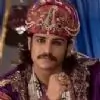

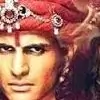














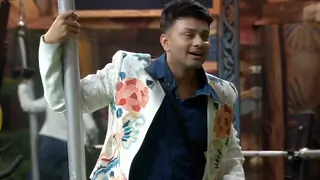



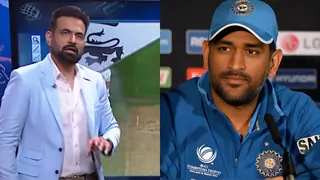
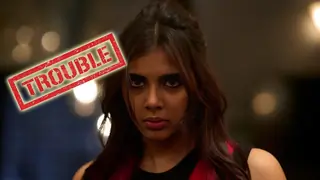

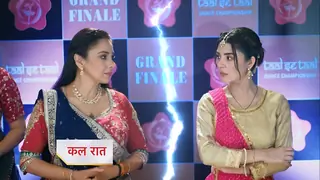



24